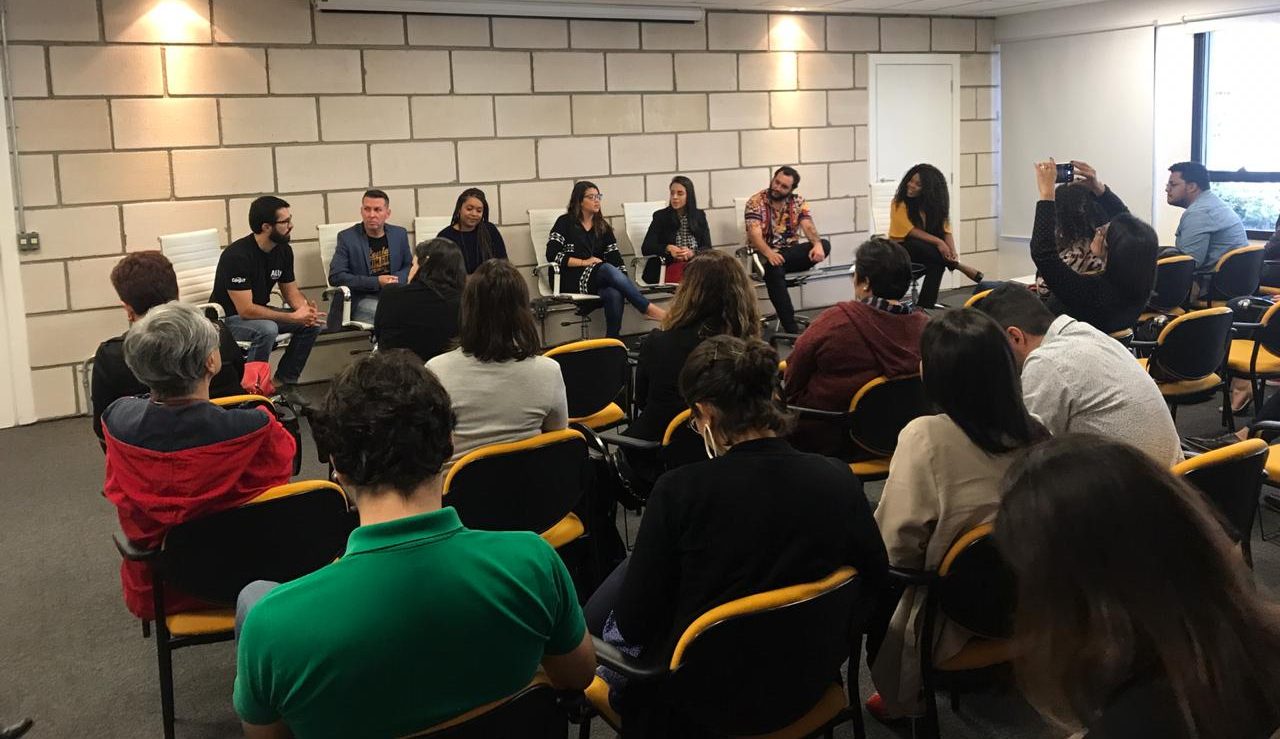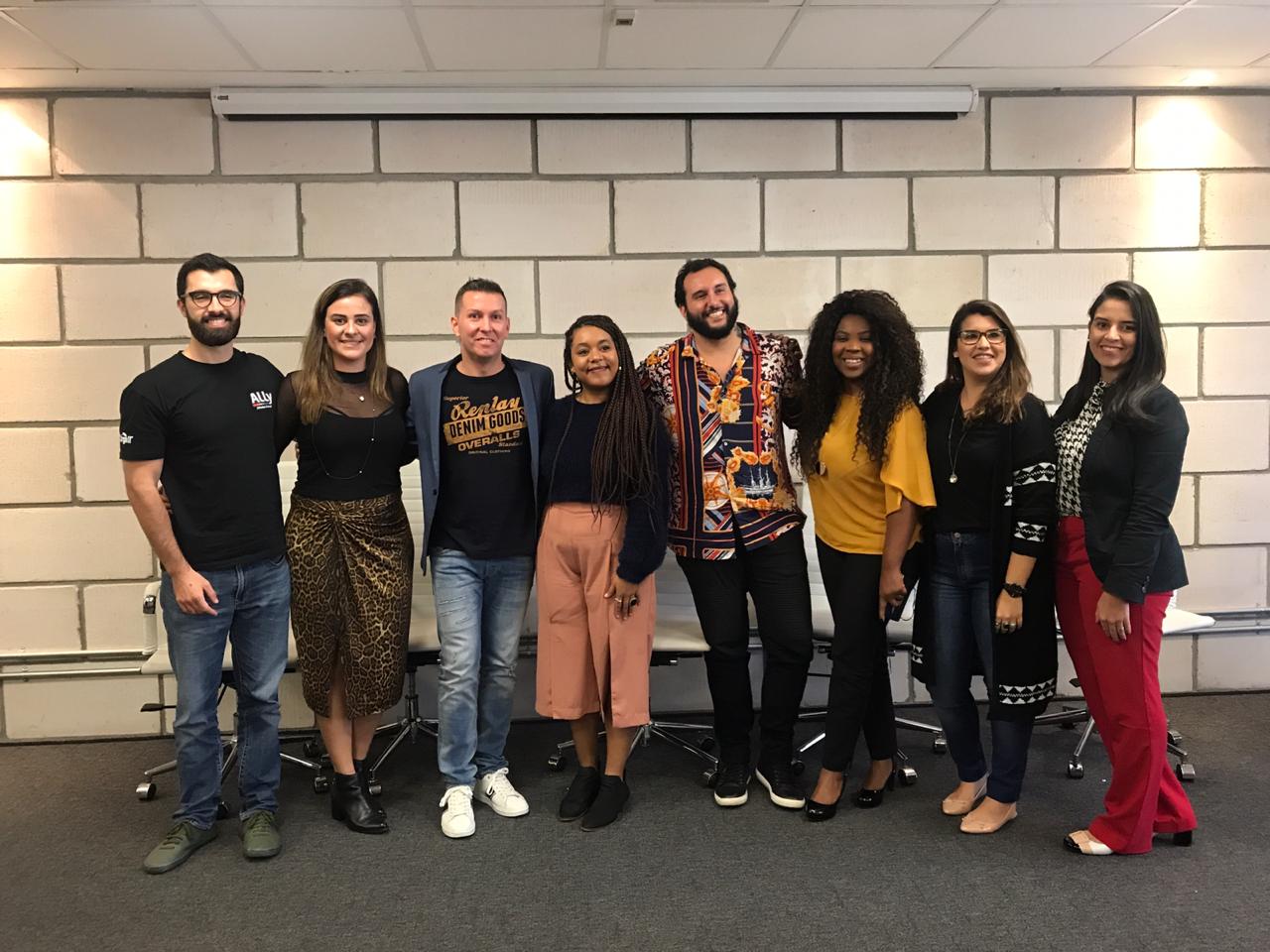Aberje’s Communication Lab targets diversity

In June, LGBT+ Pride Month, Aberje launched its Communication for Diversity Lab. The initiative is partnered with Avon and Bayer and aims to discuss the challenges of inclusion in the corporate environment.
Companies with sound Diversity and Inclusion policies have better financial results. According to a study by McKinsey and Co, the companies with the most gender diversity are 21% more likely to show better results. In the case of cultural and ethnic diversity, the margin increases to 33%. Accordingly, Aberje’s Lab sought to present the initiatives that some companies are doing to promote diversity.
The meeting was hosted by Aline Alves Felix, Talent Manager & Leader of Diversity and Inclusion at Bayer, and Lucas Fajardo, Leader of LGBTQ cell at Avon; and featured lectures by Marcelo Melo and Thalita Queiroz , LGBT+ Pride leaders at Sodexo; Willian Ramos, Product Manager and leader of the affinity group Cargill Pride Network in Brazil; Mariana Simões, Supervisor of Sustainability and Diversity at White Martins; and Daniele Mattos, Communication & Culture at Mutato.
The initiatives presented were:

Sodexo Group
Sodexo is a 400,000+ employee global company focused on providing quality of life services. The diversity policy is thus embedded in the company’s business, which has a specific vice-presidency to talk about diversity on a global level. The five pillars of diversity are people with disabilities, gender, sexual orientation, generations, and culture and backgrounds.
Since 2014, Sodexo’s internal research of engagement has a simple statement for its Brazilian employees: “I feel that Sodexo values diversity.” In the first year, the agreement to the statement was 87%. In 2018, the percentage increased to 97%. The performance of the Pride LGBT+ group plays an important role in this indicator. The group works on two fronts: firstly, making the environment safe for those who are part of the community; secondly, taking information and educating those who do not understand or do not know this reality. For this, Sodexo’s Queiroz and Melo provided some tips. “Invest in non-verbal communication. It is extremely important to pass on the message because a simple pin or sticker on the notebook gives the message that it’s a safe place,” they say.
Cargill
Cargill’s Willian Ramos founded the Pride Network in Brazil based on the initiative that exists in other units of the company, such as those in the USA and Belgium. One of the pillars of the Pride Network is acting in education. In this sense, one of the educational programs is called Aliados, which already has more than 1,000 employees and deals directly with inclusion. One of the program’s concerns was to take its goals to the furthest plants of the company. “One of the activities of the group was calling plant managers, explaining what the program was, and sending the materials ready to be distributed by leaders to their employees. Also, the group offered to go to the plant to carry out a workshop on the theme. With this proactive attitude of the Pride Network, the adherence of managers was great.”
Mutato
Have you ever taken a neck test? At your workplace, look around and see if there are 54% of black people in the workplace, the same proportion of the Brazilian population according to IBGE. The advertising agency Mutato made that reflection about three years ago. The agency took a picture of the team and realized that there was little diversity in the group. “This nuisance we felt led to begin a transformation process,” says Daniele Mattos.
The Diversity Committee was created to sensitize managers, the board, and colleagues to become aware of their own unconscious biases. The Committee positions itself as a helping group, not a judgmental or accusatory one.
“If I can give you one last tip, it’s to hack the system. It is easy to put yourself in the place of ‘there is not what I can do to change things,’ but we will only achieve the transformations that we want if we hack the system from the inside,” says Mattos.
White Martins
White Martins is a B2B industry, providing industrial and medical gases. That is, the audience is mostly male. In this reality, the challenges are great, and one of the first challenges was to raise the issue of gender, encouraging the entry of more women into the company.
Today, the diversity strategy has three phases: attraction, development, and culture. Attracting diverse talents, spreading the concept of unconscious biases to managers, so that they strive to hire candidates with profiles other than their own. Development is about promoting strong performance in training and workshops for employees. Finally, culture – the role of the Communication area – is focused on spreading messages internally and externally to generate an inclusive environment
In 2010, the Diversity Council was created in South America. In the following years, booklets, manuals, and policies on diversity, online training, adherence to the movement ElesPorElas (HeForShe), the LGBT pact, and the United Nations for Racial Equality pact were signed. As a result, results start surfacing. In 2012, the company received almost 5,000 resumes, 20% of which were women. In 2018, there was a nearly 10-fold increase in the number of people interested in working in the company: 49,000 CVs, 37% of which were women. Currently, the proportion of engineering trainees is practically equal between men and women, and a third of the total number of trainees is black.
Destaques
- Painel de Cases do Prêmio Aberje antecipa tendências da comunicação corporativa
- Conectando dados: insights da quinta reunião do Comitê de Cultura de Dados e Mensuração de Resultados
- CEOs discutem desafios da comunicação na liderança corporativa
- Belém recebe lideranças para discutir sustentabilidade e desenvolvimento na Amazônia
- Quinta reunião do Comitê de Comunicação Interna, Cultura Organizacional e Marca Empregadora debate engajamento de colaboradores
ARTIGOS E COLUNAS
Leila Gasparindo A força da Comunicação Integrada: unindo Influenciadores e assessoria de imprensaAgnaldo Brito Diálogo Social e Comunicação Corporativa: A Construção do Valor na Era dos DadosHamilton dos Santos O esporte na mira da crise climáticaGiovanni Nobile Dias Agilidade sem perder a qualidade: desafios da comunicação contemporâneaRicardo Torreglosa A consolidação do projeto de integração entre Comunicação e RelGov






























